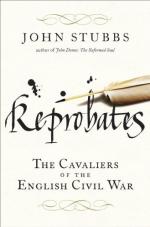|
This section contains 1,612 words (approx. 6 pages at 300 words per page) |

|
SOURCE: Literary Introduction to Politics, Religion, and Literature in the Seventeenth Century, edited by William Lamont and Sybil Oldfield, J. M. Dent and Sons, Ltd, 1975, pp. xiii-xvii.
In the following essay, Lamont and Oldfield describe the literature of the 1640s as obsessed with religion and argue that the issues which inspired the poetry of that time period are still relevant today.
This anthology of selections from seventeenth-century controversy assaults the reader's inner ear with a multitude of differing voices—some uplifted in hope for mankind, some bitterly disillusioned, some mocking, some indignant, some querulous, some ferocious, some resigned. 'The subjective, not the objective, alone is true,'1 maintained Kierkegaard, and Blake insisted that 'everything possible to be believed is a portion of truth.'2 What we are concerned with here are the multitudinous subjective truths in the phenomenology of men and women in seventeenth-century England. Each extract, therefore...
|
This section contains 1,612 words (approx. 6 pages at 300 words per page) |

|


